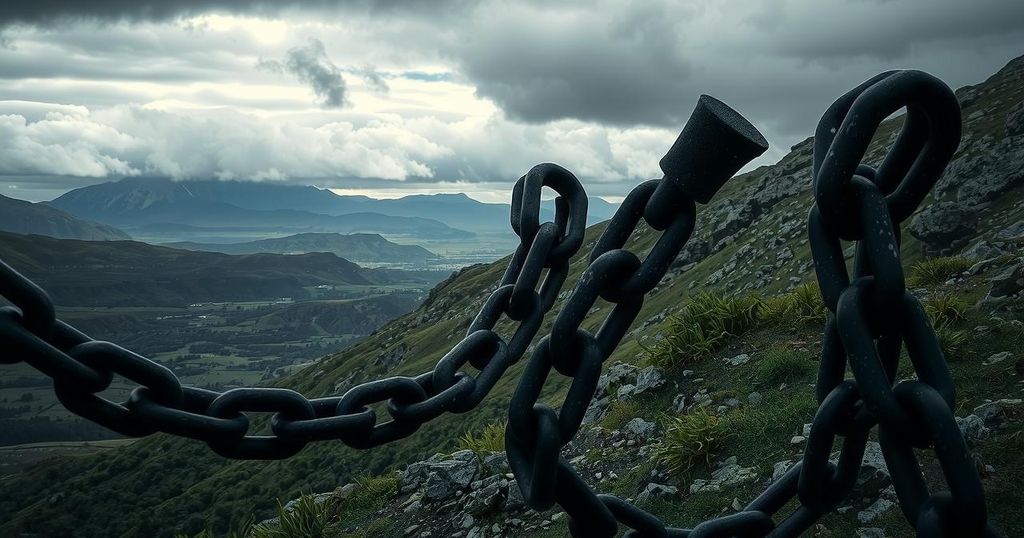The rebellion by Rwanda-supported M23 rebels in eastern Congo poses a risk of escalating into a regional conflict, prompting international concern. Regional leaders convened but provided limited solutions, primarily advocating for negotiations. Congolese President Tshisekedi seeks allied assistance to address the M23, which is seen as a proxy for Rwanda. The situation is complicated by historical grievances and competition among neighboring countries. The pathways to peace remain uncertain amidst ongoing tensions and conflicts of interest.
In eastern Congo, the ongoing rebellion by Rwanda-supported M23 rebels threatens to escalate into a broader regional conflict, raising alarms among neighboring countries. The recent capture of Goma by the M23 rebels has prompted concerns from various east and southern African nations, although a recent summit produced limited solutions, primarily calling for dialogue and a ceasefire without mandating a withdrawal from Goma.
Congolese President Felix Tshisekedi has sought support from regional allies to combat the M23 resurgence, which resurfaced in late 2021. Troops from Burundi and Tanzania have been deployed, while Uganda has sent forces to address different rebel factions, amid complex regional tensions. This intricate political landscape, described as “juggling a polygamous marriage,” complicates efforts for territorial integrity.
Congo perceives the M23 as a proxy force for Rwanda, aiming to exploit the region’s rich mineral resources, which are valued in the trillions. The armed group, reportedly bolstered by around 4,000 Rwandan troops, is driven by longstanding tensions surrounding Hutu rebels operating in eastern Congo, linked to Rwanda’s historical ethnic conflicts.
Eastern Congo has endured decades of conflict, with potential for another regional crisis reminiscent of the late 1990s when various African nations intervened. Analysts contend that both Rwanda and Uganda play crucial roles in addressing the fighting, with concerns over their competing interests. The ongoing friction between these nations may exacerbate the crisis, especially regarding Rwanda’s suspicions of Ugandan support for opposing rebel factions.
Burundi’s involvement has also intensified, as tensions with Rwanda have risen, leading to closed border crossings and a strong warning from Burundian President Evariste Ndayishimiye regarding Rwanda’s expansionist motives. The complexity of alliances and historical grievances could result in regional warfare if not carefully managed.
Despite attempts at peace, involving some foreign military presences, including a U.N. peacekeeping force, efforts have largely stalled. The lack of engagement by President Tshisekedi with the M23, alongside his virtual attendance at peace talks, signals the difficulties in resolving these tensions. The Congolese government asserts that the crisis fundamentally threatens its sovereignty rather than reflecting an ethnic conflict.
As the situation remains precarious, the paths forward for peace and stability in the region are uncertain, with diplomatic efforts appearing fragile amid entrenched divisions and competing interests among regional leaders.
The rebellion in eastern Congo, backed by Rwanda, poses a serious risk of escalating into a regional war, drawing in multiple neighboring countries. Efforts for a ceasefire and dialogue have yielded minimal outcomes, showing the complexity of alliances and tensions in the area. With Rwanda and Uganda holding pivotal roles, the prospects for peace remain dim, emphasizing the urgent need for effective diplomatic intervention.
Original Source: www.newsday.com




